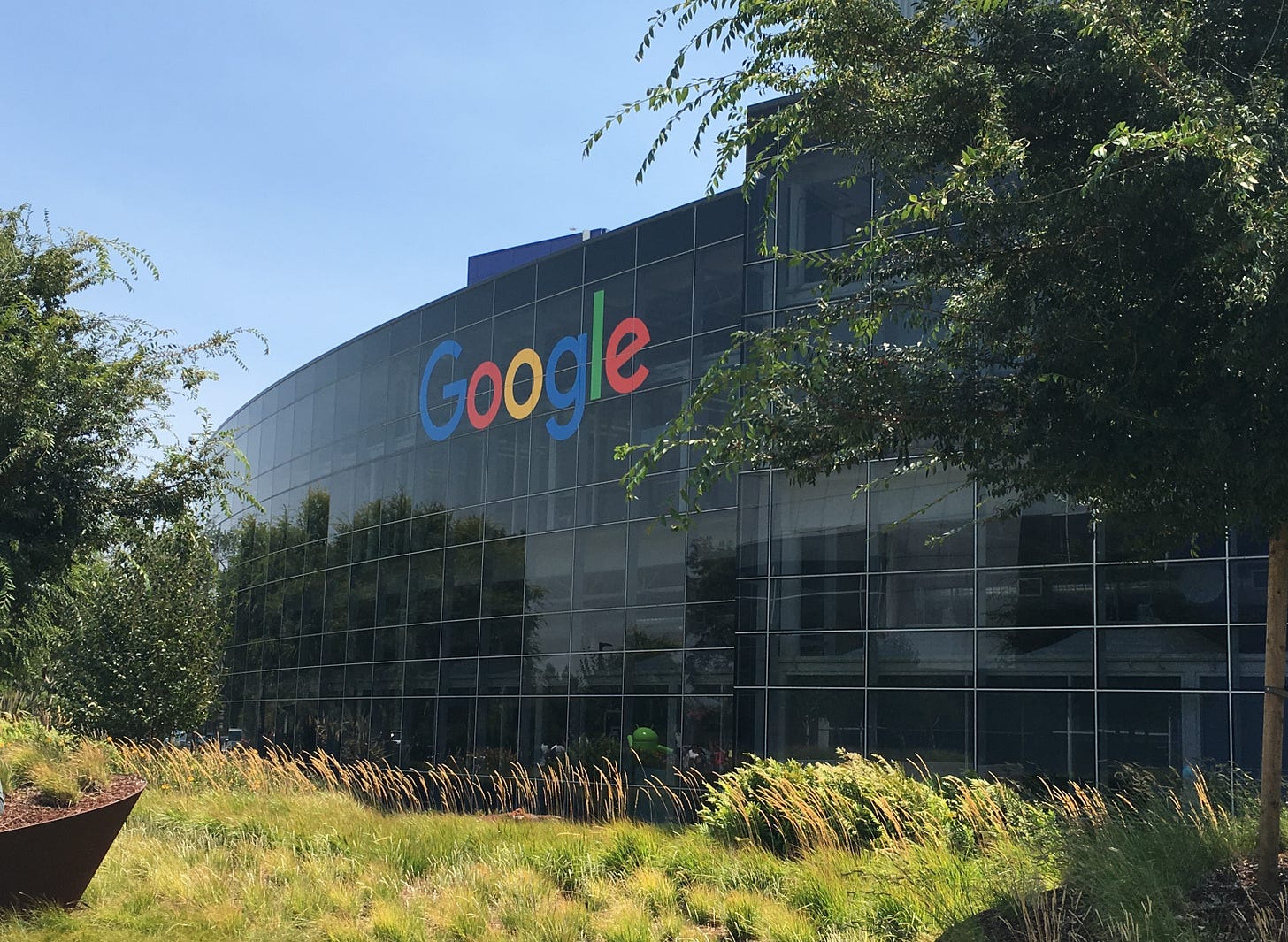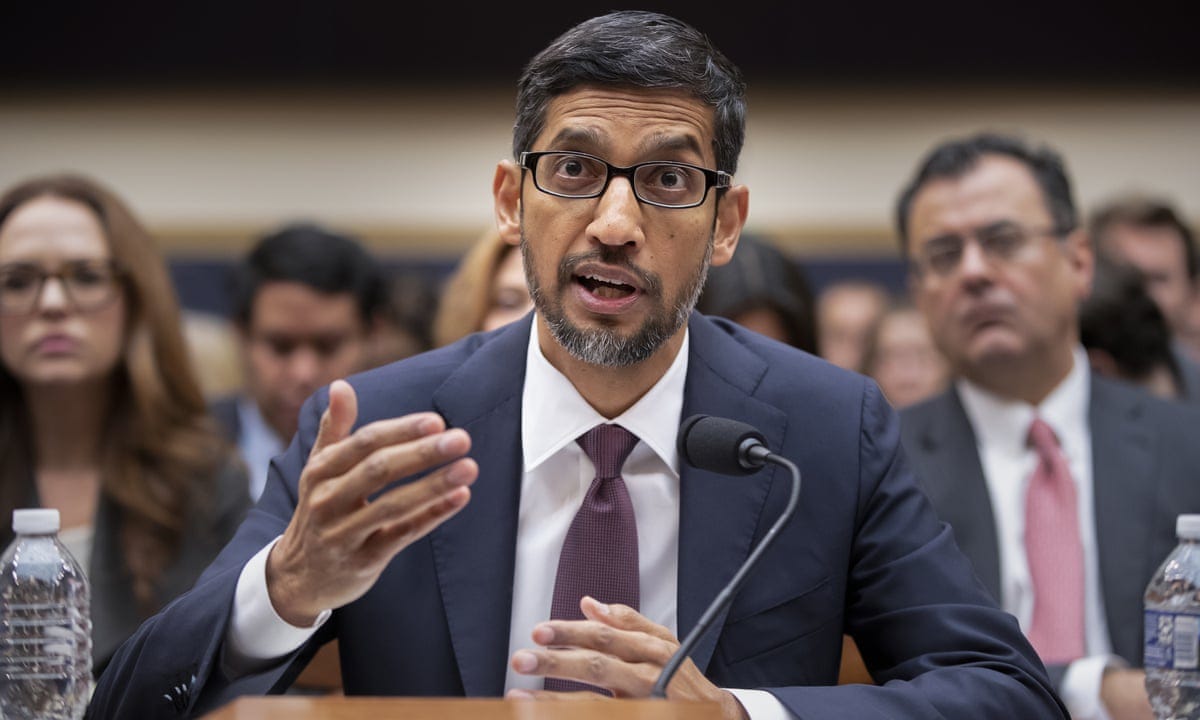Google's Antitrust Trial in USA— Commences 12th September
The Battle for Fair Competition: Understanding the U.S. vs Google Antitrust Case, the 10-week legal odyssey that commences September 12, 2023.
Introduction
When Google burst onto the scene in the late '90s with its revolutionary search engine, it was lauded as a game-changer. Fast forward to today, and this Silicon Valley behemoth boasts a valuation of $1.7 trillion, shaping not just how we seek information but also influencing our shopping habits, work-life, and social interactions. However, the question looms large: has this astronomical growth come at the expense of fair market competition? This question forms the crux of a groundbreaking U.S. antitrust case against Google. This article aims to demystify the complex dimensions of this litigation, particularly for those who are not well-versed in tech parlance or the nuances of the U.S. legal system. Given that Google's CEO, Sundar Pichai, has Indian roots, this case is likely to be closely monitored in India as well.
Google and its Dominance
Google is no longer just a search engine; it's an ecosystem. You might use Google Docs for work, Android software on your mobile, Google Maps to find your way, YouTube for entertainment, and Google Assistant as your personal helper. Google is so intertwined with our daily lives that it's hard to imagine a day without it.
However, this convenience has a flip side. With a whopping 90% market share in the U.S. and 91% globally, Google's dominance extends beyond mere statistics. It essentially dictates the way online businesses operate and how advertisements are run. Most concerning, perhaps, is its influence over what we see and read, which in turn shapes public opinion.
The Antitrust Angle: Overview
In the U.S., antitrust laws aim to preserve market competition and protect consumers. Enforced by bodies like the Federal Trade Commission and the Department of Justice, these laws have been pivotal in landmark cases against corporations like Microsoft, for monopolistic practices related to its browser, and AT&T, which was broken up to allow competition in telecommunications. These historical antitrust actions set the stage for ongoing scrutiny into Google's operations, prompting questions about whether the tech giant is exploiting its dominant position to the detriment of consumer choice.
Monopoly and Consumer Exploitation?
The Justice Department alleges that Google illegally stifled competition by entering into lucrative agreements with companies like Apple to make Google the default search engine on their devices. This effectively sidelines other competitors and gives Google an unfair advantage. For the non-techie, imagine going to a marketplace where only one shop sells all the goods; you have no choice but to buy from them, whether you like it or not.
Moreover, Google's pre-eminence means that it can dictate the terms of advertising, affecting both large and small businesses. It can prioritise its own services over competitors in search results, guiding consumers towards a Google-centric online experience.
Google's Defence: Lawfulness and Consumer Choice
Google's stance on its dominant position in the market is rooted in the belief that they operate within the bounds of the law. The company posits that its agreements with technology giants like Apple are non-exclusive, allowing other search engines to vie for integration into devices and platforms. Google contends that these collaborations merely facilitate easier access to its services and do not impose any restrictions that deter competition.
Furthermore, Google claims that its market leadership is not a manifestation of monopolistic or anti-competitive behaviour. Instead, they attribute their dominance to the quality and efficacy of their products. The user-friendly interfaces, seamless integration across multiple services, and the superior search algorithm, according to Google, are the fundamental reasons consumers voluntarily opt for their platform over others.
The Google Lawsuit: Corners Attention
The lawsuit against Google is groundbreaking and promises to have far-reaching implications, both for Google and the broader tech industry. It has the potential to fundamentally alter how big tech companies conduct their business, thereby setting new legal precedents for the internet era. The U.S. government's focus is not just on altering Google's current business practices; it also explores the possibility of a structural reconfiguration of the company. This case extends its significance far beyond the realm of search engines; it is likely to influence a multitude of sectors, including but not limited to, e-commerce, media, and advertising.
Given the high stakes involved, this landmark trial has gripped the attention of various global entities—media houses, legal experts, technology majors, and regulatory bodies. Financial markets too are keeping a keen eye on the proceedings, as the outcome could significantly impact big tech's role in modern society. Dubbed the 'First Monopoly Trial of the Modern Internet Era,' the trial is anticipated to last for an exhaustive 10-week period. It serves as a pivotal litmus test for how antitrust laws will apply to the rapidly evolving digital landscape.

Challenge of Balancing Innovation and Fair Competition
Google stands as a titan in the digital world, offering an array of free services that have transformed how we interact online. The launch of Google Bard, an AI-enabled search engine, is a testament to the company's continual innovation. These advances have ushered in unparalleled convenience and information accessibility, benefitting billions of users globally.
However, the sheer scope of Google's influence raises questions about market fairness and consumer choice. The company's dominant position goes beyond mere market share; it's also about the potential for exploiting consumers through data collection and targeted advertising. The ongoing antitrust lawsuit in the U.S. exemplifies the scrutiny the tech giant is under. This is not merely a domestic issue; it has garnered global attention from media, legal experts, and regulatory bodies. The outcome could reshape sectors as diverse as e-commerce, media, and advertising, setting legal precedents for the digital age.
Our take Prioritise Global Consumer Interest
In the final analysis, the judiciary faces a monumental task: preserving the benefits of Google's innovations while ensuring an equitable digital marketplace. Striking this balance is no small feat and should be executed with extreme care. It's crucial that any judicial decision prioritises the interests of consumers around the world. In doing so, we can hope to uphold the positive impacts Google has had on global society, while mitigating risks that come with its towering presence in the digital landscape.







